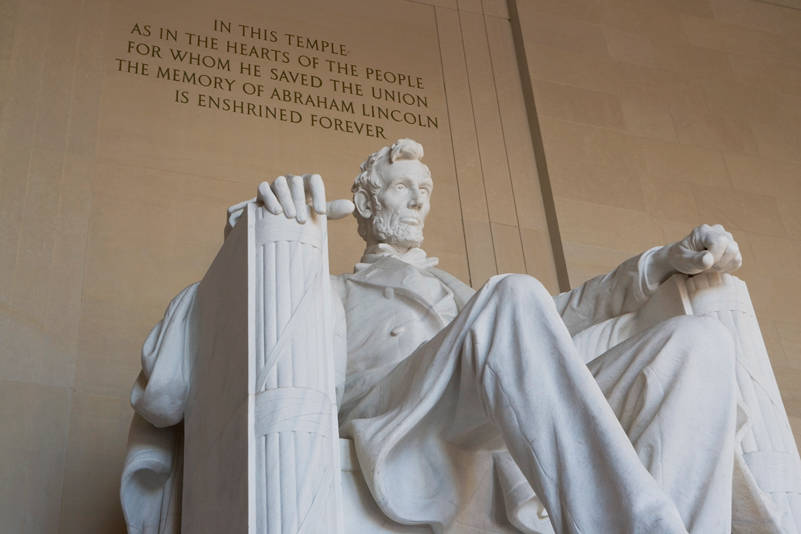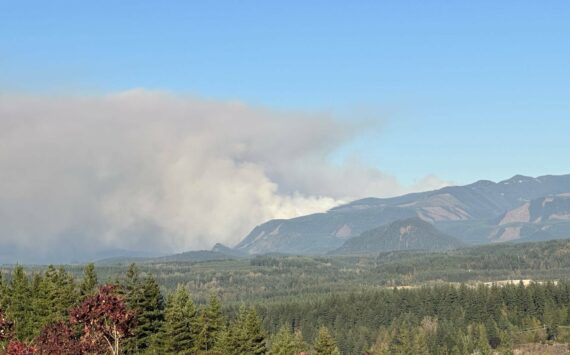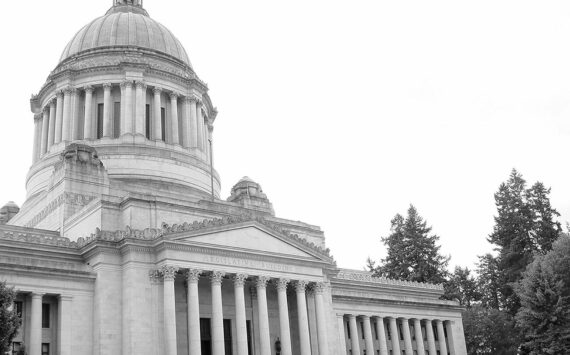By Morf Morford
Tacoma Daily Index
January and February are very strange months; the holiday lights and Christmas trees come down and the Martin Luther King Jr.. and presidential quotes go up.
Martin Luther King Jr.., once hunted and hounded by every level of law enforcement from local, small-town police to the FBI, has his most anodyne statements duly recited, posted and tweeted by school children and those same bland white officials that cursed and castigated him a generation ago.
By a series of semi-accidental circumstances, Martin Luther King Jr. Day is the only holiday named for, and dedicated to, a single individual.
Many years ago February did not hold “President’s Day” – it held two separate holidays, each one honoring what are generally agreed to be our two most respected presidents – George Washington and Abraham Lincoln. Those two presidential birthdays were merged into one school or work holiday.
So for most of us, February and January each have one paid holiday.
There are events commemorating these holidays, but for the most part, most of us treat these as days off, and many businesses “celebrate” those days the way they commemorate virtually every other holiday – by holding holiday weekend sales.
Every holiday has its expression from decorated trees to colored eggs or elaborate banners.
January and February, perhaps because they follow the holidays with the most intense marketing and hoopla, are far more subdued, even somber.
January every four years holds a presidential inauguration and in the intervening years holds a State of the Union address from the sitting president.
February, of course, besides being our shortest month, holds President’s Day.
The January and February holidays may not be very exciting, but they are welcome.
Most of us use them as part of our “recovery” from the rush and frenzy of the “holiday season” of the previous month or two – ever do an inventory of how many holidays are crammed into November and December? From Veterans Day to Thanksgiving to New Year’ Eve, there’s hardly a day without some party, event or commemoration wrapped around and forever associated with it.
But January and February don’t have very many holidays, and the few we have are more historical, even circumspect.
Those presidential or MLK quotes may be inspiring or sober reminders of long held (or maybe even long-neglected) ideals and principles, but they are not always exciting or memorable.
The most challenging statements, perhaps even those that caused us to raise those men (and of course, as of this writing, every president has been a man) to holiday status might warrant a closer look.
Presidents and public figures (like Martin Luther King Jr.) are known, and remembered for their words.
There’s an old saying that people with good manners don’t make history, and those sanitized sayings we hear and see from George Washington, Abraham Lincoln and Martin Luther King Jr. are not the statements that made them memorable or worth honoring.
But the quotes and stories are what we can agree on, and perhaps share.
It might seem naïve and simplistic, and almost certainly historically false, but there is something charming, even appealing, about the well-known “I cannot tell a lie” story about George Washington.
Could we even begin to imagine such a line now in anything other than a comedy skit?
And Abraham Lincoln’s prescient and powerful words known as The Gettysburg Address spoke to our nation in a historic time of division and conflict, and still speak to, as Lincoln put it, our “better angels.”
His words, spoken when we, as a nation, were literally at war with ourselves, still resonate and remind us that it is our shared vision that makes us who we are, that liberty and justice are for all, not just some, and opportunity is for any who would claim it, not for those merely born into it.
His words deserve to be seen in full:
Four score and seven years ago our fathers brought forth on this continent, a new nation, conceived in Liberty, and dedicated to the proposition that all men are created equal.
Now we are engaged in a great civil war, testing whether that nation, or any nation so conceived and dedicated, can long endure. We are met on a great battle-field of that war. We have come to dedicate a portion of that field, as a final resting place for those who here gave their lives that that nation might live. It is altogether fitting and proper that we should do this.
But, in a larger sense, we can not dedicate — we can not consecrate — we can not hallow — this ground. The brave men, living and dead, who struggled here, have consecrated it, far above our poor power to add or detract. The world will little note, nor long remember what we say here, but it can never forget what they did here. It is for us the living, rather, to be dedicated here to the unfinished work which they who fought here have thus far so nobly advanced. It is rather for us to be here dedicated to the great task remaining before us — that from these honored dead we take increased devotion to that cause for which they gave the last full measure of devotion — that we here highly resolve that these dead shall not have died in vain — that this nation, under God, shall have a new birth of freedom — and that government of the people, by the people, for the people, shall not perish from the earth.
These are words to live by, words to inspire future generations and yes, words for our presidents, if not all leaders to live up to.
These last few years have been a challenge for leaders as well citizens.
We can do better; we must do better.
I hope I am absolutely wrong, but I think I see a far more likely route many of us will take in this year of presidential changes; literally overnight, 74 million people will suddenly develop moral or behavioral standards for a president, be concerned about COVID death and national debt numbers—and dump their “respect for the office” sermons.
We’ve seen it before. Americans are famous for short attention spans. Most of us will forget the past four years even happened.






